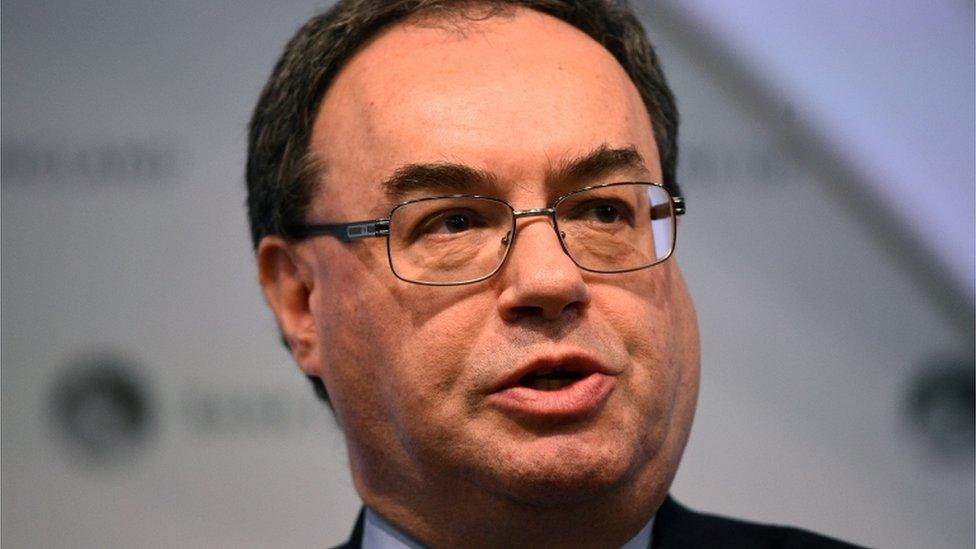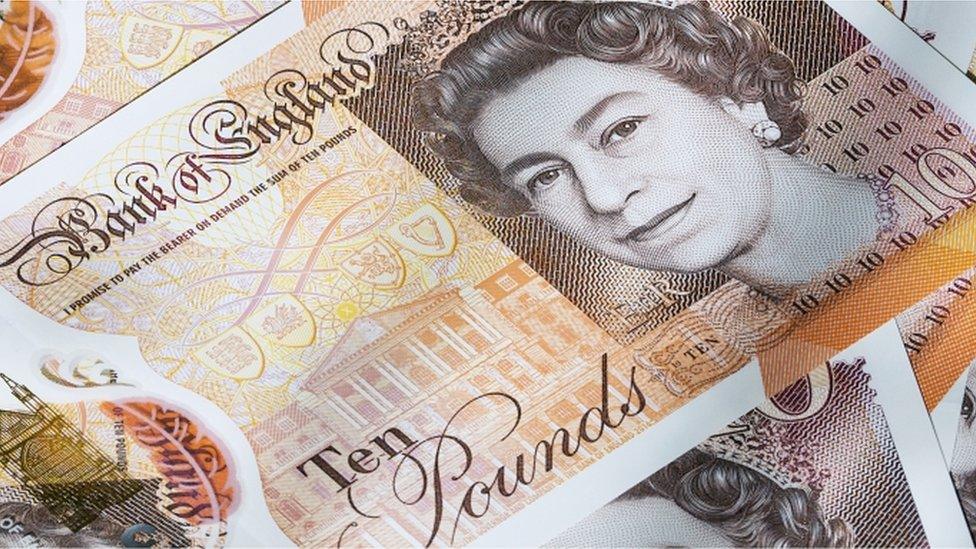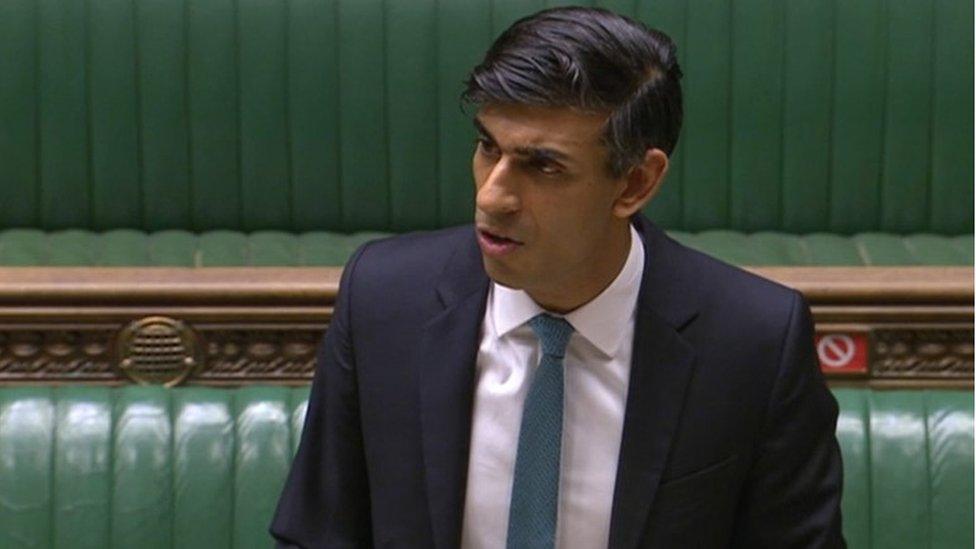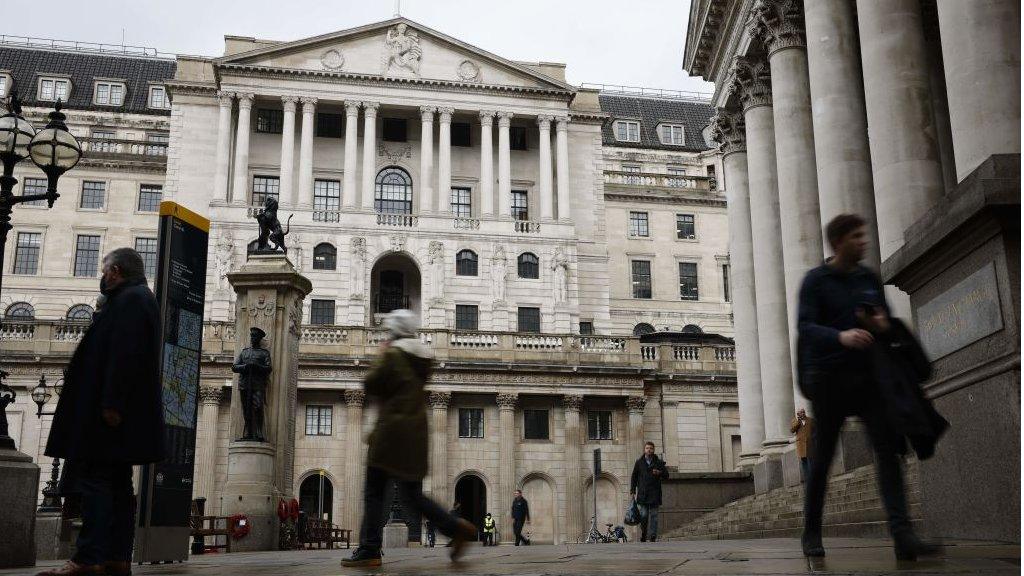Bank of England 'acting to spread shock of crisis'
- Published

Andrew Bailey indicated that a further UK recession was likely this winter
The Bank of England governor has told Scottish business leaders it is acting to spread the shock of the current crisis rather than face an "unbearable" downturn leading to "chaos".
Andrew Bailey indicated that a further UK recession was likely this winter.
Growth at the end of 2020 was zero or slightly down, and has since worsened.
He warned the UK economy was in "a very difficult period", and the trajectory for economic recovery would be revised in its February forecast.
Speaking in a webinar with 190 members of the Scottish Chambers of Commerce, Mr Bailey said unemployment was probably closer to 6.5% than the official 4.9% UK rate from the Labour Force Survey.
But he added that the labour market was the hardest piece of data to read at present.
The forecast of a rise to a peak of 7% or 8% unemployment later this year will be revised, following the extension of the furlough scheme.
The governor said quantitative easing would continue this year, with a further £150bn of asset purchase to be spread through this year, in addition to £300bn during 2020.
He said this buying of corporate financial assets was being used to maintain stability in the economy, and not intended to fund government borrowing.
He also spoke about planning for a possible move to negative interest rates, saying they had not been tried anywhere in the retail market.
Working with commercial banks, the central bank is considering how banks would earn a return on negative interest rates, and whether their computer systems could cope with negative numbers.
The problems with such a policy would be practical rather than with the economic theory behind such a radical step.

Looking ahead, Mr Bailey talked about the high level of savings in the economy, because many have retained previous levels of income but not had the opportunity to spend as much as usual.
While unevenly spread, he said economists were trying to forecast how that might change spending behaviour when restrictions on hospitality and travel are lifted.
"That is unevenly distributed across the population," he told the webinar. "It's much more pronounced among better off people, with fewer opportunities to spend. There's an age-related effect there as well.
"It's hard to say what's going to happen to that when restrictions are lifted.
'We're all puzzling'
"Are people going to go on a spending spree because they've been cooped up and restrained over quite a long period of time? Or are they going to say 'this has been a salutary lesson, and therefore I should hold higher savings?'
"We're all puzzling about how that might play out."
Explaining the underlying intention of Bank of England policy, he told Scottish Chambers of Commerce members: "What are we doing here? To be honest with you, spreading the impact of this huge shock over time.
"If we had left the impact of this shock to play out over one year, the impact would have been unbearable. It would have been chaos.
"So the thrust of what we're doing is to spread this over time. What I can't do is to say over what time. That's not a judgement it's possible to enter into."
Brexit impact
Speaking about low interest rates and quantitative easing, he said: "It is the sensible thing to do. It's what other countries are doing. But when you strip it all down, it's spreading the cost over time, and it could be quite a long time".
Mr Bailey said it was too early to judge the short-term impact of Brexit, but with a post-festive return to normal traffic flows of goods trucks, he said it would become clearer in the next two to three weeks.
While welcoming the trade deal struck on Christmas Eve, the governor said the long-term impact would force change in the economy.
But on the subject of the "scarring" effect of the Covid crisis, he counselled against comparison with the recession of the 1980s, when heavy industry closed down, assets were scrapped, unemployment was higher and there was a shift to a more service-based economy.
Related topics
- Published11 January 2021

- Published17 December 2020
